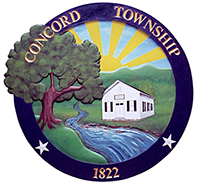
In townships, certain regulations are established by a majority vote of the Trustees and are called “resolutions”. Most people are familiar with the term “ordinances”, which is a term ascribed to regulations established by municipalities like cities and villages. Townships are not municipalities.
Most Requested Resolutions
- Curfew for Juveniles
- Design Standards for Permanent Cul-de-Sacs
- Emergency Responders Digital Radio Coverage
- Mailbox Replacement Policy
- Noise Resolution
- Parking Prohibtions
- Public Road Construction
- Covering of Drainage Ditches
- Snow Parking Ban
- Transient Vendors
- Excessive Vehicle and Engine Noise
- Zoning Resolution
- Electric Vehicle Charging Station Requirements
- Fireworks Ban
Limited Home Rule
What is Limited Home Rule (LHR)?
House Bill 77, signed by then Governor George Voinovich on June 18, 1991, allowed Townships in the State of Ohio to adopt Limited Home Rule (LHR), following prescribed procedures, outlined in Ohio Revised Code (ORC) 504.01. LHR form of government gives broader powers to townships that enact it, and it allows a township and its citizens to be more proactive in creating legislation of benefit to those within the community. Limited home rule allows townships to enact resolutions to improve the health, safety and welfare of its citizens. The township may not exercise any power that conflicts with the general laws of the State.
For more information on some of the benefits of Limited Home Rule, type of legislation permissible under Limited Home Rule and non-permitted legislation under Limited Home Rule, please refer to Limited Home Rule Information.
Limited Home Rule Resolutions
- Res. 2024-03 Prohibiting cultivation, processing, retail sale of cannabis-LHR
- Res. 2024-01 Repealing 2023-31 and entering into legal services with TDD-LHR
- LHR Res 2019-1: To Identify the Systems of Public Roads, Streets, and Highways within the Township
- Res. 2018-24 Limited Home Rule
